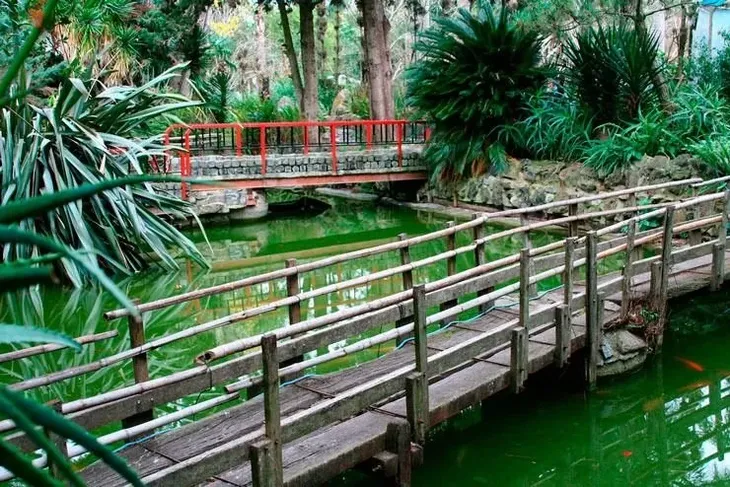japan-tokyo
freepik.es
Immigrate to Japan: exchange programs
Some schools and universities have agreements with institutions in Japan, allowing students to spend a few weeks or months in a Japanese center. In addition, many private companies organize exchanges. Another excellent option is to take a summer course, which does not interfere with regular classes.
These are some agencies that organize this type of exchanges:
- AFS (https://afs.org/)
- EF Education First (https://www.ef.com/wwen/)
- Japanese Foundation for International Exchange (https://www.jfie.gr.jp)
- Aston Herencia (https://astonherencia.es/)
- ISE USA (https://iseusa.org/)
These programs often They offer the possibility of staying with a host familywhich can enrich the experience, allowing you to get to know local life, learn the language and make friends.
If you have the money to pay for these courses, you will find schools easily. But, what happens if you don’t have the necessary resources? That is where scholarships become one of the best options to come to Japan.
Emigrate to Japan: how to apply for study scholarships
There are many scholarships that you can apply for: convened by the European Union, by universities in Japan, and more. These are some options:
MEXT Scholarships
He Ministry of Education, Culture, Sports, Science and Technology (MEXT) of Japan accepts applications from foreign students to study in Japan. There are different types of scholarships: university, master’s, doctorate, research, teaching, etc. You should look for the information on the page of the Japanese embassy in Argentina.
JASSO Scholarships
The Japan Student Services Organization (JASSO) offers information on how to study in Japan in different ways, including its own scholarships.
Vulcanus Program
This scholarship, called by the European Union, is focused on engineering students. Thanks to it, you will be able to learn Japanese and do an internship in a Japanese company.
Minerva Program
Are Research scholarships last 6 months and are intended for any professional or researcher from any European country. At the end of the stay, a report is delivered on the investigations carried out.
JSPS Scholarships
The Japan Society for the Promotion of Science (JSPS) offers an extensive variety of research scholarships in Japan, both in the short and long term.
These scholarships can be an excellent opportunity for study and live in Japanfacilitating the educational and cultural experience in the country.
mizujo 2.webp

Mizujo, a Japanese experience 50 kilometers from Buenos Aires.
Immigrate to Japan: 10 other ways to get a visa
Japanese student
If you are clear that you want to live in Japan for several years, attend a school to study Japanese It is an excellent option. The student visa can extend from 6 months to 2 years. As a student, you are allowed to work part-time (maximum 28 hours a week), which makes it much easier to obtain a work visa later. Getting a job is much easier once you are in Japan with permission to work than looking for a company from Argentina. Furthermore, during those months at school you will learn the language, which is a great advantage. The only drawback is that the cost of these schools is usually quite high, so it is a good idea to come with a lot of money saved if you opt for this option.
You can access these schools with a tourist visa, but if you want to stay longer, you will have to look for a school that grants you a student visa. If you need help with the process, there are companies that assist you with paperwork, accommodation, and more.
Foreign Language Teacher
If he English is your native language and you have a university degree, you will be familiar with the option of coming to Japan to teach English. In addition, it is one of the few options where you can search for work from Argentina in a simple way. Unfortunately, other languages are not as in demand as Englishbut you can always investigate if that is the path you want to follow
Teacher in Private Schools
There are many private schools that are looking for teachers for conversation classes and do not require previous experience in education. You can search directly on job pages in Japan and filter by schools that offer visas.
Another good option is to use ‘recruiters’ or agencies that help you get placed in a school. Keep in mind that these companies usually take advantage of the situation, so the conditions and compensation they offer are not very good. But at the same time, they will facilitate your work visa, so everyone wins.
Professor at Japanese Universities
Japanese universities also offer teaching opportunities. If you are interested, we recommend the ‘Mayi Chan in Japan’ podcast. She is a Spaniard who has been living in Japan for more than six years teaching Spanish, both in private academies and universities. In her podcast, she mentions that To be a full-time professor at a university it is necessary to have a doctorate or several publications, so getting a visa this way is not easy.
Working Holiday Program
This is the most recommended option, since it has few requirements and offers many advantages. It allows you to spend one year in Japan with the right to work without limits on hours, unlike the student or dependent visa. If you are under the age limit, do not hesitate to apply for this visa.
Internships in Japanese Companies
There is special visa for students who come to do internships in Japanese companies (within the ‘Designated Activities’ visa). If your university offers this possibility, you can do an internship here for a few months (even a year), which is great for your resume and to have a first contact with the Japanese world of work. I know people who have come this way and, although initially it seems like a temporary visa, if the company hires you after the internship, you will have obtained the desired work visa quickly and easily.
Work Visa
The work visa is the ultimate goal. Getting this visa is much easier once you are already in Japan. Within work visas there are many categories depending on the sector, but they all have something in common: you need higher education or to demonstrate certain experience. Generally, a university degree is an essential requirement. Failing that, They usually ask for between 3 and 10 years of experience in your field.
Artist, Photographer, Musician, Dancer
These visas fall within the ‘working visa’ categorybut they require certifying that you are a professional in the sector, proving the activities you are going to carry out in the country, the companies you are going to work with, the duration of your projects and your income. These visas are not easily granted without solid contracts with Japanese companies. I know a photographer who is here with this visa and I know that it is not easy to get (and maintain), but it is not impossible either.
Freelance (Self-Sponsored Visa)
If you are self-employed, you could try obtain a ‘self-sponsored visa’, although this type of visa does not officially exist. This is a work visa in which you demonstrate your contract with several clients instead of just one. You have to submit all your contracts, payrolls, etc., with Japanese companies to demonstrate a stable income of 3 million yen per year. In addition, one of those clients must act as a ‘sponsor’, filling out and signing the main application form.
Getting started in Japan: Business Manager Visa and Start-Up Visa
To set up a business in Japan, you need a ‘business manager visa’. Among the requirements, You must prove a capital of 5 million yen, have a physical office in Japandeliver a business plan, demonstrate that your salary is enough to live in the country and hire at least one employee.
He ‘Startup Visa’ program is a temporary permit created to help entrepreneurs who do not have the time or resources to apply directly for the ‘business manager visa’. The requirements are more flexible, but it is not a long-term solution, since after 6 months or a year (depending on the prefecture), your business must meet the requirements to be able to apply for the ‘business manager visa’.
‘Specified Skilled Worker’ visa
This visa is focused on workers in sectors such as construction, agriculture, hospitality, elderly care, etc. It requires passing an exam demonstrating your skills and having a basic level of japanese (N4). It has disadvantages, such as that your stay cannot exceed 5 years and is not compatible with the ‘dependent visa’, which means that you cannot bring your spouse or children to the country. You will need a contract with a company that acts as your sponsor to apply for this visa.
Dependent Visa and Spouse Visa
If you are married to someone of non-Japanese nationality who has a job in Japan, you can apply for the ‘dependent visa’, which allows you to live in the country but with a limit of 28 hours of work per week. This visa is also used to bring your children. Not all work visas are compatible with the dependent visa. For example, if you get the ‘Working Holiday’ or the ‘Specified Skilled Worker’your family will not be eligible for the dependent visa.
If you marry a Japanese national, you can apply for the ‘spouse visa’, which allows you to work full time, among other benefits. This visa depends directly on your marriage, so in case of divorce or death of your spouse, you would lose the visa and may have to leave the country if you do not get another visa to stay in Japan.
Source: Ambito
I am an author and journalist who has worked in the entertainment industry for over a decade. I currently work as a news editor at a major news website, and my focus is on covering the latest trends in entertainment. I also write occasional pieces for other outlets, and have authored two books about the entertainment industry.




